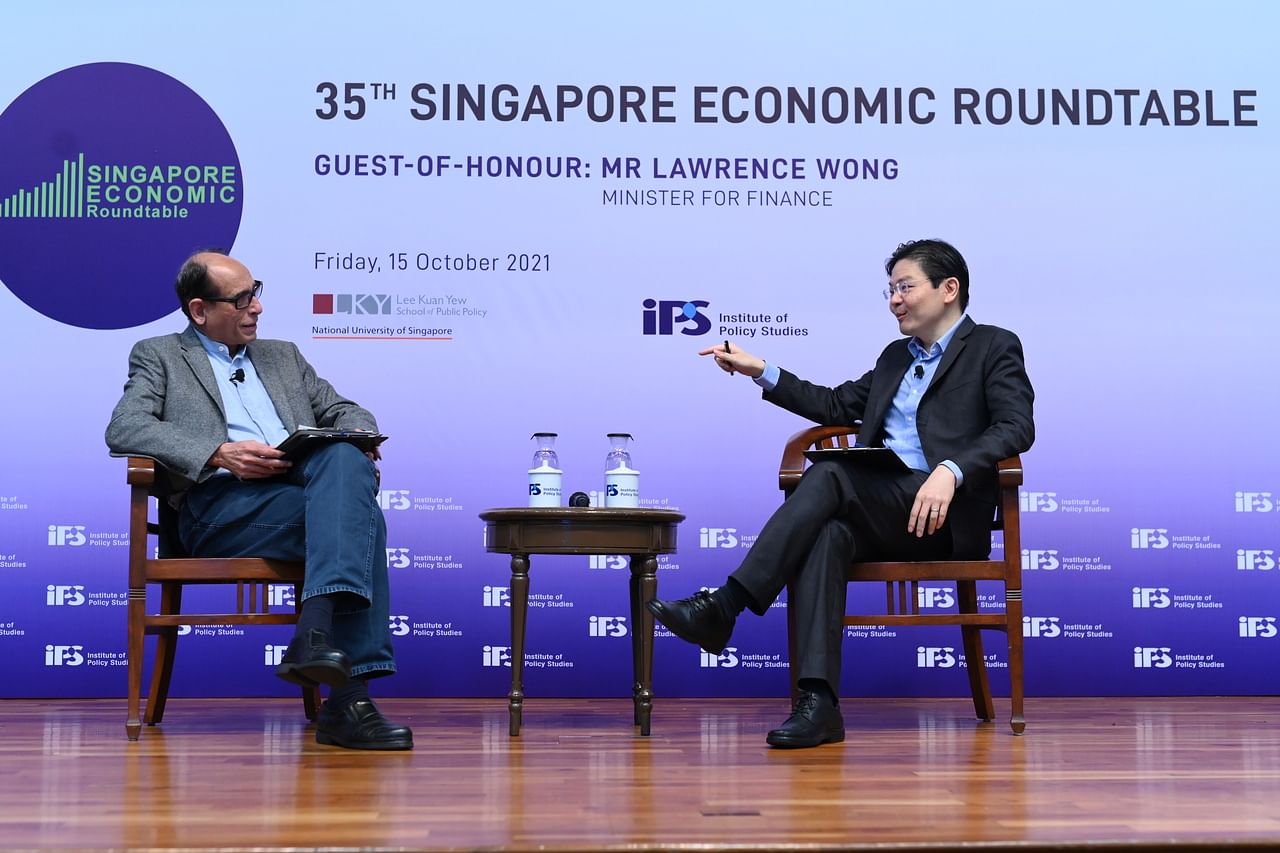SINGAPORE - In deciding on the timing for the impending goods and services tax (GST) hike, the Government will look closely at the overall economic conditions, including the outlook on inflation, Finance Minister Lawrence Wong said on Friday (Oct 15).
He stressed that the increase will come with offsets that will effectively delay the effects of the hike for the majority of the population by five years, and for the lower income by 10 years.
Besides the offset package, the permanent GST Voucher Scheme will also be enhanced, he added.
"GST in Singapore is quite unique, compared to almost all other countries," he said, adding that the GST Voucher Scheme will defray the GST hike for lower- and middle-income households.
Against the backdrop of the Covid-19 pandemic, the planned GST hike from 7 per cent to 9 per cent - which the Government has said would take place between next year and 2025, and sooner rather than later - has sparked much discussion with many wondering when exactly it will be implemented.
Mr Wong was asked on Friday at the 35th Singapore Economic Roundtable about how inflation would influence the timing of the increase.
Inflation is flaring up around the world - jumping to 4.1 per cent in Germany and 5.4 per cent in the United States - and eroding purchasing power, and the minister said the Government is watching the situation very closely.
But he reiterated the Government's position, and said the GST hike will have to take place probably sooner rather than later.
"And we will consider the overall economic outlook, including the outlook on inflation, when we eventually decide on the actual timing of this move," he added.
The planned GST hike was announced in 2018 and is meant to help Singapore meet rising recurrent spending needs, especially in healthcare and social support.
A $6 billion Assurance Package was set aside last year to help cushion the impact of the hike. The Government also announced plans to enhance the GST Voucher Scheme, which comprises cash, MediSave and U-Save or utilities rebates components.
Mr Wong, citing these measures, said: "When you look at that, then you appreciate that... the GST move shouldn't be looked at in isolation."
Another area that Singapore continues to explore to increase its tax base is wealth taxes, Mr Wong said.
Asked about this at the biannual meeting of private sector economists, business leaders and policymakers, he said: "Well, I shouldn't talk about what we are thinking about for the Budget. But as I said in my speech, we are studying what options there are to expand our system of wealth taxes."
He added that three factors go into the Government's consideration on this front: whether it is an effective way of taxation that will not be easily avoided; whether it can be done without undermining overall competitiveness; and whether any new wealth taxes will add to Singapore's overall revenue and resilience.
"One of the big challenges or the practical issues with any form of wealth tax is that wealth is mobile, and it can be easily avoided," he said.
"Talent and wealth can move to other places, so we have to consider that very carefully."

With the recent progress in the international effort to overhaul the global tax system and set a minimum global corporate tax rate, Singapore may also see some additional revenue from corporate taxes, said Mr Wong.
Referring to the base erosion and profit shifting initiative, or Beps 2.0, to revise tax rules and clamp down on tax avoidance by multinational companies, he said: "We will update our corporate tax system accordingly to be in line with these new international norms.
"And so long as this is done on a level playing field, all countries adopt this, we will go along with that approach. Doing so may give us some additional revenue through changes in our corporate tax system."
During the 30-minute dialogue session moderated by The Straits Times associate editor Vikram Khanna, Mr Wong was also asked about whether the Government would revisit the fiscal rule of achieving balanced Budgets for each term of office, given the projected increase in spending and the large deficits precipitated by the Covid-19 pandemic.
The rule is enshrined in the Constitution.
To this, Mr Wong said the rule does not preclude the Government from undertaking counter-cyclical spending and in an emergency scenario, such as the pandemic, it can draw on the fiscal firepower of past reserves subject to the President's agreement.
He added that there are good reasons to keep the rule now, though nothing is ever off the table.
"I think it's a sound system that instils a culture of fiscal responsibility and stewardship, and still enables us to spend when the need arises," he said.
"Once you lose that discipline, there is no turning back. And that's why in many advanced countries, you see rising deficits, and that it doesn't get better. So I would have a care about... saying: 'It's okay, let's just allow some relaxation'."


